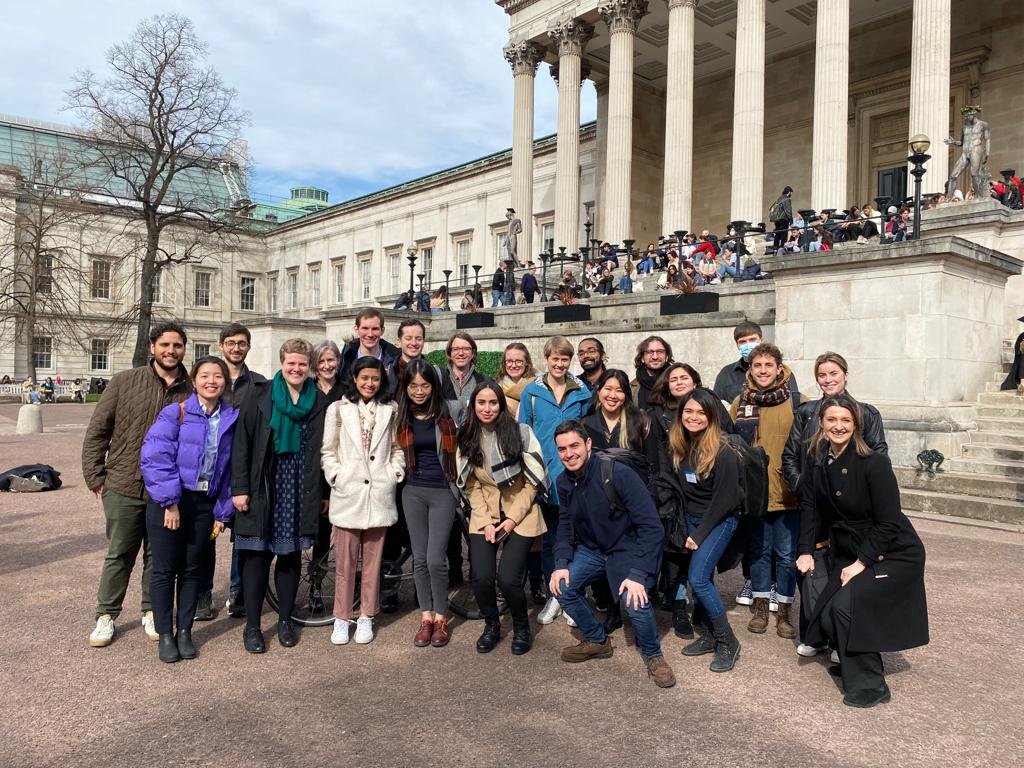“By a show of hands, for how many is this the first in-person workshop after the pandemic?”
Professor Nils Metternich’s opening question of the annual Conflict & Change PhD Workshop set the tone right from the start. After moving online in 2021, this year’s edition of the workshop on 14th-15th March brought more than 25 PhD researchers from the UK and continental Europe back to London. As in previous years, the workshop programme featured varied panels, a keynote speech, and an accompanying social programme. The pool of participants featured more than a dozen institutions including Hertie School Berlin, University of Amsterdam, the London School of Economics and Political Science (LSE), University of Oxford, ETH Zurich, and the University of Oxford, amongst others. Over the two days, participants—often for the first time in person—presented their PhD projects and other work, and received feedback from senior members of the Conflict & Change research cluster.
The first panel Cooperation, Fragmentation, and Conflict Processes saw presentations on insurgent violence and pro-government militias, the role of violent wings in contentious movements, violence against social minorities, and in-fighting of armed groups. C&C members Dr Luis Schenoni and Professor Nils Metternich served as discussants and provided valuable feedback on these projects.
The subsequent panel on Varying Approaches to Conflict Resolution and Peace concerned different aspects of the peacebuilding process. The projects ranged from the study of interventions by UN peacekeepers and states to projects on peace communities and demobilisation. Dr Rob Abouhard and Professor Neil Mitchell provided feedback.
After lunch, the afternoon offered two additional panels. For the first one on the Repression, Repercussions, and Perceptions of Protest, Dr Katerina Tertytchnaya and Dr Samer Anabtawi discussed papers that looked at the perceptions of repression and protests, the effects of protests on public discourse and the external support for protest movements.
The last panel of the first day comprised projects on the Moral, Social, and Political Legacies of Conflict. Here, Professor Kristin Bakke and Dr Zeynep Bulutgil provided feedback for projects on the legacy of heritage sites, the role of civil resistance for halting democratic backsliding, and socialisation processes among German prisoners of war (POWs) in the UK.
The second day of the workshop kicked off with a great and insightful keynote by Dr Abbey Steele who discussed the edges of conflict research and provided invaluable advice to the early career researchers in the room. She was present throughout the entire workshop and her active participation was appreciated by everyone.
The morning panel thereafter focused on Resettlement, Displacement, and Wartime Order. Dr Abbey Stelle discussed papers ranging from education and property rights and its intricate relationship with displacement, to resettlement and coups during civil wars.
The final two panels of the workshop focussed on Modern Technology and Communication During Crises as well as Communal Conflict and Local Dynamics. Dr Kalina Zhekova offered feedback for presentations on the impact of varying technologies such as transnational trolls, the role of sirens, and digital repression on conflict dynamics. Dr Inken von Borzykowski and Dr Manuel Vogt commented on four insightful papers on election violence, foreign direct investment and conflict dynamics, communal conflict and civil war in Nigeria, and the importance of hostage taking for terrorists’ strategies.
This year’s workshop was organised by C&C members Sigrid Weber, Finn Klebe, Kit Rickard, and Sam Erkiletian. The workshop would not have been possible without the generous funding from the Octagon Small Grants Fund by the Institute for Advanced Studies (IAS) and the School of Public Policy (SPP)! Thank you to all the participants for presenting their great projects as well as all discussants for their thoughtful feedback.
The C&C research cluster look forward to future editions of the workshop.




